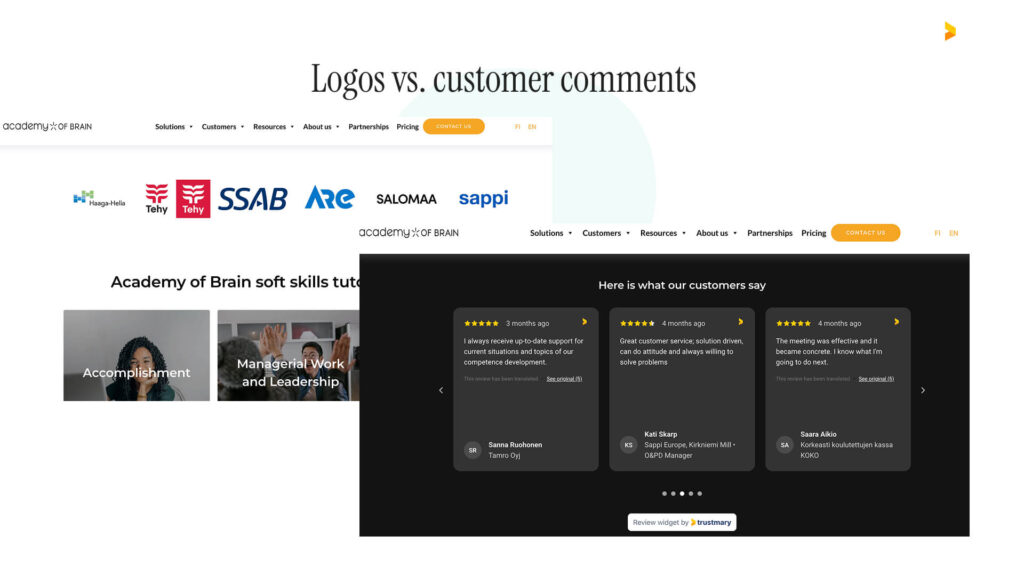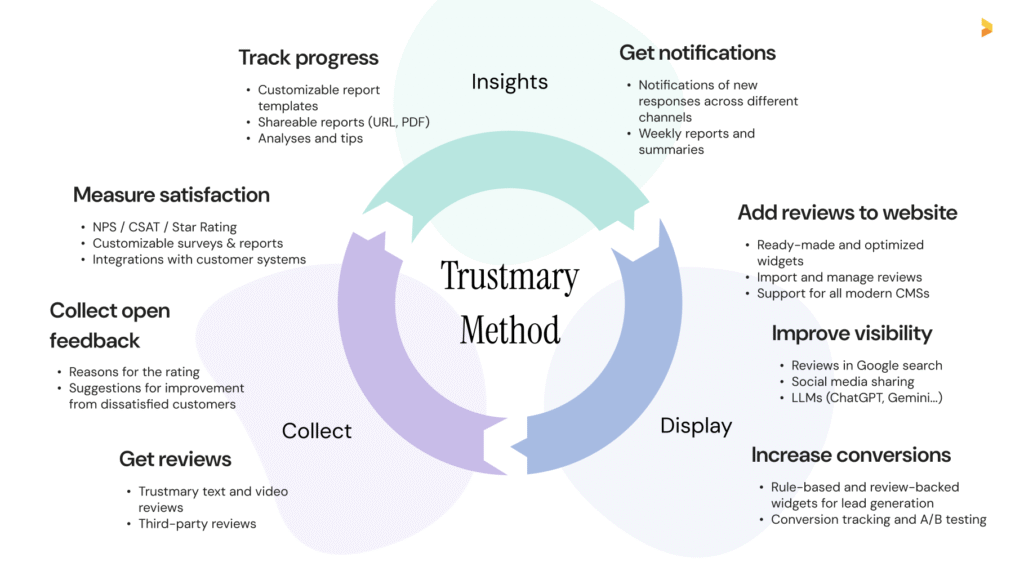Digital Marketing Matters for Small Businesses: 3 Tips


If you’ve ever searched for “plumber near me” or “roof repair in my area,” you already know how your customers find you. People don’t flip through phone books anymore; they Google, scroll, and read reviews.
For small businesses, digital marketing is about being visible where your customers are already looking.
It’s not about fancy campaigns or viral videos; it’s about showing up consistently online, earning trust, and turning that trust into business.
Even in industries that rely on word-of-mouth, having an online presence multiplies your reach.
Just one good customer review can make the difference between someone calling you or moving on to a competitor.
1. Know Your Audience
The first step in any digital marketing plan is understanding who you’re talking to.
If you don’t know your audience, you’ll waste time and money on ads or posts that don’t connect with anyone.
Think about your best customers. What kind of people are they? Where do they live? What problems do they usually need help with?
For example:
- A kitchen remodeler might work mostly with homeowners in their 40s and 50s who want to modernize older homes.
- A plumber might serve busy families who value fast service and reliability.
- A solar company might target homeowners interested in cutting energy costs.
The more you understand your ideal customer, the easier it becomes to create marketing that speaks directly to them.
How to Get to Know Your Customers
You don’t need expensive tools to learn about your audience. Start simple:
- Ask questions when you talk to customers: “How did you find us?” “What made you call?”
- Use social media polls to see what people are most interested in.
- Check Google reviews to see what people are praising or complaining about.
If you want a clear example of industry-specific targeting, take a look at how Trustmary breaks down customer segments in the article on how to grow HVAC business.
It shows how understanding your audience’s pain points helps shape both your messaging and your service offerings.
2. Build Trust with Social Proof
You can have the best website in the world, but if people don’t trust you, they won’t buy. That’s why social proof is one of the most powerful parts of digital marketing for small businesses.
Social proof simply means showing that others trust your business.
Reviews, testimonials, and customer photos are trust signals that help potential buyers feel confident in choosing you.
According to research shared in social proof statistics that may surprise you, a huge majority of consumers read online reviews before making a purchase, and most trust those reviews as much as recommendations from friends.

The Power of Online Reviews
You don’t need to spend money on ads to build trust. Happy customers can be your best marketers.
Encourage satisfied customers to leave reviews on Google or Facebook. Respond to every review, even the bad ones. When someone leaves a complaint, be polite and professional, future customers will see how you handle feedback.
If you’re in home services, bad roofer reviews how to react gives excellent advice on turning a negative review into a chance to show integrity and win back trust.
Even a few positive reviews can make a huge impact.
As shown in online reviews statistics, businesses with more than 10 reviews convert significantly more leads than those with only one or two.
When you have reviews, remember to add them to your website with an all-in-one review widget to display them all at once.
3. Focus on Consistency, Not Perfection
A lot of business owners give up on digital marketing too soon. They post a few times, calling it social media marketing, run one small ad, and don’t see results right away, so they stop.
But marketing doesn’t work like that. It’s a long game where the goal is to stay top of mind for your target audience.
Customers rarely buy the first time they see your business. They might need to see your name or read your reviews several times before they act.
For a small business, customers might not need your services at this very minute, but you want to be the first they think about when, for example, their pipe bursts or roof starts leaking.
That’s why consistency matters so much more than perfection.
Even simple actions, such as sending one email a week, posting before-and-after project photos, or asking for one new review each month, can make a real difference over time.
Understanding Conversion Rates
Marketing is often a numbers game. Not everyone who sees your ad or post will buy.
If 100 people see your Facebook ad, maybe 10 will click, and one will become a customer. That’s normal.
In this scenario, your conversion rate will be 10/100=0,1 = 10%
The key is to keep improving your message and growing the number of people who see it.
Digital marketing is about trust, consistency, and testing. Don’t expect instant results; expect gradual growth.
4. Learn from Industry-Specific Strategies
Every small business is unique, but local service companies share similar challenges, limited budgets, local competition, and time constraints.
The good news is that there’s plenty to learn from businesses like yours.
Here are a few home improvement business related examples, as we at Trustmary have also worked in the area in one way or another:

HVAC and Home Service Businesses
If you’re in heating, cooling, or plumbing, check out the guide on how to grow HVAC business.
It covers simple yet effective steps like collecting reviews after every job and using automation tools to follow up with customers.
Other small businesses can also benefit from these tips!
Local Marketing for Plumbers
Plumbers can benefit from strong local SEO, showing up on Google Maps when people search nearby.
Trustmary’s article on local marketing for plumbers shares practical tips like optimizing your Google Business Profile and encouraging customers to leave location-based reviews.
Solar Companies and Digital Visibility
For businesses in renewable energy, the competition can be tough. The post on digital marketing for solar companies explains how educating customers with useful content can build long-term trust — for example, writing blog posts that explain how solar panels actually save money over time.
Renovators and Remodelers
If your business focuses on kitchens or home remodeling, using feedback software can simplify collecting and managing testimonials.
See best feedback software kitchen renovators and remodelers for a detailed comparison of the best tools to use.
5. Gather Feedback and Testimonials Automatically
Getting feedback from customers doesn’t just improve your marketing, it improves your business. You’ll learn what people love and what could be better.
In the home improvement world, customer opinions carry a lot of weight. The article on reviews and feedback in home improvement companies explains how consistent feedback helps businesses fine-tune their services and showcase real customer success stories.
Using a testimonial generator or review automation tool (like Trustmary) can save hours each week and ensure you never miss the chance to capture happy customer experiences.
6. Track What Works and Adjust
One of the biggest advantages of digital marketing for small businesses is that you can measure results.
You don’t have to guess whether a campaign is working. Tools like Google Analytics, Facebook Insights, and Trustmary’s feedback dashboard show exactly what brings traffic, leads, and reviews.
If something isn’t working, like a Facebook ad with no clicks, don’t see it as failure.
See it as data. Try a different message, image, or audience.
Small improvements can have a big impact over time.
7. Build a Reputation That Sells for You
When you combine reviews, consistent marketing, and great service, something powerful happens: your business starts to sell itself.
Future customers will come to you because they’ve already seen proof of your good work online. They trust you before they even call.
That’s the real magic of digital marketing for small businesses. It doesn’t just get you seen, it makes you trusted.

3 Actionable Steps to Boost Marketing Efforts
Digital marketing for small businesses doesn’t require a massive budget, email marketing, or a complex strategy.
It’s about:
- Knowing who you’re talking to = target audience
- Building trust with proof from real customers = good customer experience
- Staying consistent, learning, and improving over time = improve based on feedback
So, the three most valuable tips for doing digital marketing for small businesses:
1. Know Where Your Potential Customers Hang Out
It's no use having a social media marketing strategy for Facebook if none of your customers are there.
Ask existing customers where they spend time online and offline.
- Local events
- Social media platforms (Instagram, TikTok, Facebook, Reddit,...)
- How they look for new services (search engines, asking friends, ...)
- Which newspapers do they read?
- Do they read roadside ads?
- Do they watch video content?
Only after you know where your target audience is can you start figuring out what would work for you in terms of online channels.
If your best customers find you through search engines, it makes sense to put most of your marketing budget into improving search engine optimisation.
2. Define Your Competitive Advantage
Once you understand who your ideal customers are, the next step is to figure out why they should choose you instead of your competitors. That’s your competitive advantage.
Your competitive advantage is the unique combination of qualities, services, or values that set your business apart. It doesn’t have to be something fancy or revolutionary, sometimes, it’s as simple as being the most responsive, the friendliest, or the cleanest team in town.
What Makes You Different?
Ask yourself a few questions:
- What do my customers appreciate most about my service?
- What do I consistently do better than my competitors?
- What frustrations do customers have with other providers that I can solve?
For example:
- A plumber might promise same-day service with no hidden fees.
- A solar company might offer free energy consultations and clear ROI reports.
- A roofing business might highlight transparent pricing and photo proof of completed repairs.
- A kitchen renovator could emphasize personalized design support and consistent communication.
Even if you’re offering a common service, your delivery, attitude, or reliability can be your edge.
Your digital marketing channels should all talk about your unique selling point and strengths.
Use Customer Feedback to Discover Your Strengths
If you’re not sure what your advantage is, let your customers tell you. Look through your Google reviews or feedback forms. You’ll start seeing patterns — maybe people keep mentioning your friendly team, fast response, or high-quality finish.
As explained in reviews and feedback in home improvement companies, regular customer feedback doesn’t just improve service; it also reveals what makes your business truly stand out.
Once you’ve defined your competitive advantage, make it visible. Add it to your website headline, social media bios, and even your business cards. Repeating your key strength helps customers remember what makes you different — and why they should choose you.
3. Try a Digital Channel for 3 Months
Digital marketing efforts are often tried and forgotten in weeks, if not days, if they don't get results.
Social media marketing is not about posting a funny video of you dancing, going viral, and getting dozens of leads that turn into sales.
Quite the opposite. It's about creating brand visibility, creating valuable content, or just funny content. It boils down to building trust and making your company feel familiar and trustworthy.
Creating content takes time, and getting results from any digital marketing efforts takes even longer. The only exception to this rule is PPC campaigns, where you essentially pay to get visibility.
There you'll start seeing results immediately, but it might seem scary to allocate a huge marketing budget if you have no prior experience in doing paid advertising.
Pick one or two channels you'll try consistently for at least three months before throwing in the towel and moving on to the next channel.
When you combine these three steps, your business starts to grow naturally. Customers who once scrolled past you will begin to notice, remember, and trust your name.
Do Good for Your Community and the Rest Will Follow
At the heart of every successful small business is trust, and trust is built through actions, not ads.
One of the most powerful ways to strengthen your brand and attract attention is by doing good for your community. Sponsor a local youth team, donate leftover materials to charity, or offer free inspections for elderly homeowners. These small, genuine acts of care can have a big impact.
When your business becomes known for helping others, people talk about it, not just customers, but local journalists and online communities, too. That’s how you earn both loyal customers and media mentions without even trying to “market” yourself.
Side note: Media mentions will have a direct positive impact on your search engine optimization efforts.
A great example comes from our own experience at Trustmary. We were featured by Finland’s national broadcasters after our team started knitting for charity during meetings, with the employer even paying for the yarn.
It was a simple act of kindness that reflected our values, sparked positive conversation, and showed what a caring workplace culture can look like. You can read the full story in Trustmary interviewed by Yle.
Good deeds create goodwill, and goodwill builds trust. And in the long run, trust is what keeps your business growing, far more than any single ad campaign ever could.